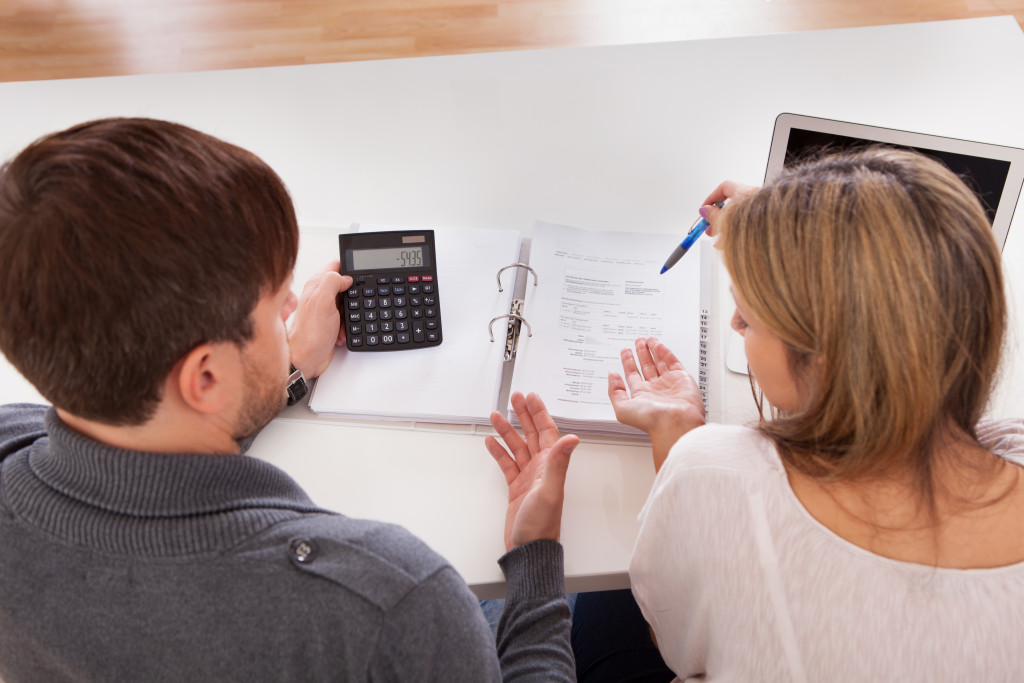There are many things to think about when you have a child. You will need to get them vaccinated and make sure they eat healthy foods. You will also need to think about their education and what kind of school is best for them. Babies also require essentials like clothing, diapers, etc. All of those necessities, unfortunately, sound like one hefty bill.
It is no secret that raising a child is expensive. According to the National Institute of Child Health and Human Development, parents can expect to spend around $233,610 on a child from birth to age 18. Many expenses associated with child-rearing, such as food, clothing, and healthcare, quickly add up.
Parents must stay financially prepared for all of the costs associated with raising a child. Otherwise, they may find themselves in a problematic situation down the road. It will take a lot of hard work, discipline, and patience to stay financially stable when you have to provide for another living being. Here are some financial preparations to consider for raising a child.
Create an Emergency Fund
Unexpected expenses will never cease to exist when you have a child, so it’s essential to have an emergency fund. Start by setting aside $500 to $1,000 and then contribute to it every month. This way, you’ll be prepared for whatever comes your way.
The emergency fund can cover medical bills beyond the capacity of your company’s health insurance coverage. It can also help prevent baby essentials like diapers, clothes, and nutritional food from becoming too unaffordable. While childcare can count as an emergency, you should avoid relying on it for your daily budget. It is a safety net, but replenishing it will be challenging because of the increasing demands of raising a kid.
Get a Headstart on Education
To be ready for the costs of a child’s education, parents should start saving early. It will help them cover the high tuition fees that many schools charge. It is important to remember that the earlier you start saving, the more money you will have. You can set aside a fixed amount of money each month or invest your money in a good savings account.
Education is essential for children, and parents want to give their kids the best chance at a bright future. However, paying for school can be very expensive. According to The College Board, the average cost of tuition and fees for the 2016-2017 school year was $33,480 at private colleges and $9,650 at public colleges. That doesn’t include room and board, which can add an extra $10,000 to your yearly bill.
Parents need to start planning for their child’s education as soon as possible. The earlier they begin saving, the easier it will be to come up with enough money to cover those costs. Fortunately, you can rely on an education insurance plan in the Philippines. The policy will help you save money while getting your child the education they deserve. The rising cost of education will become less of a worry when you invest in that insurance plan, making it necessary to speak with a financial advisor once you start family planning.
Dedicate a Budget for Baby Essentials

When you have a baby, there will be a lot of new expenses that you didn’t have before. Diapers, wipes, clothes, and formula are just some things you’ll need to budget. It is best to purchase these items in bulk. You can also take advantage of sales and discounts at your local store.
It is essential to keep track of all the new expenses associated with having a child. This way, you can avoid overspending and stay on budget. Creating a dedicated budget for your child’s essentials is a great way. You can use this strategy to set aside money each month always to have enough to cover those costs.
It will mean that other budget allocations will have to adjust. For example, you may have to spend less going out or eating out. The bottom line is that giving your child the best possible start in life is worth making sacrifices.
Seek Advice from Experienced Parents
If you’re a first-time parent, it’s understandable to feel overwhelmed by the financial responsibility of raising a child. Fortunately, many experienced parents can offer advice and support.
One great way to get started is by talking to your parents or in-laws. They can share their wisdom and experiences with you, so you can avoid making the same mistakes they did. You can also ask friends or co-workers who have kids for tips on saving money and budgeting for baby essentials.
Another excellent resource is your local library. Many libraries offer parenting classes that can provide valuable information on everything from breastfeeding to potty training. These classes can be beneficial, especially for first-time parents.
Parenting is a big responsibility, both emotionally and financially. However, by preparing yourself ahead of time, you can make the transition to parenthood a little easier. Consider these financial tips when planning for your new arrival. You’ll be glad you did when you see how much they help you save money.



